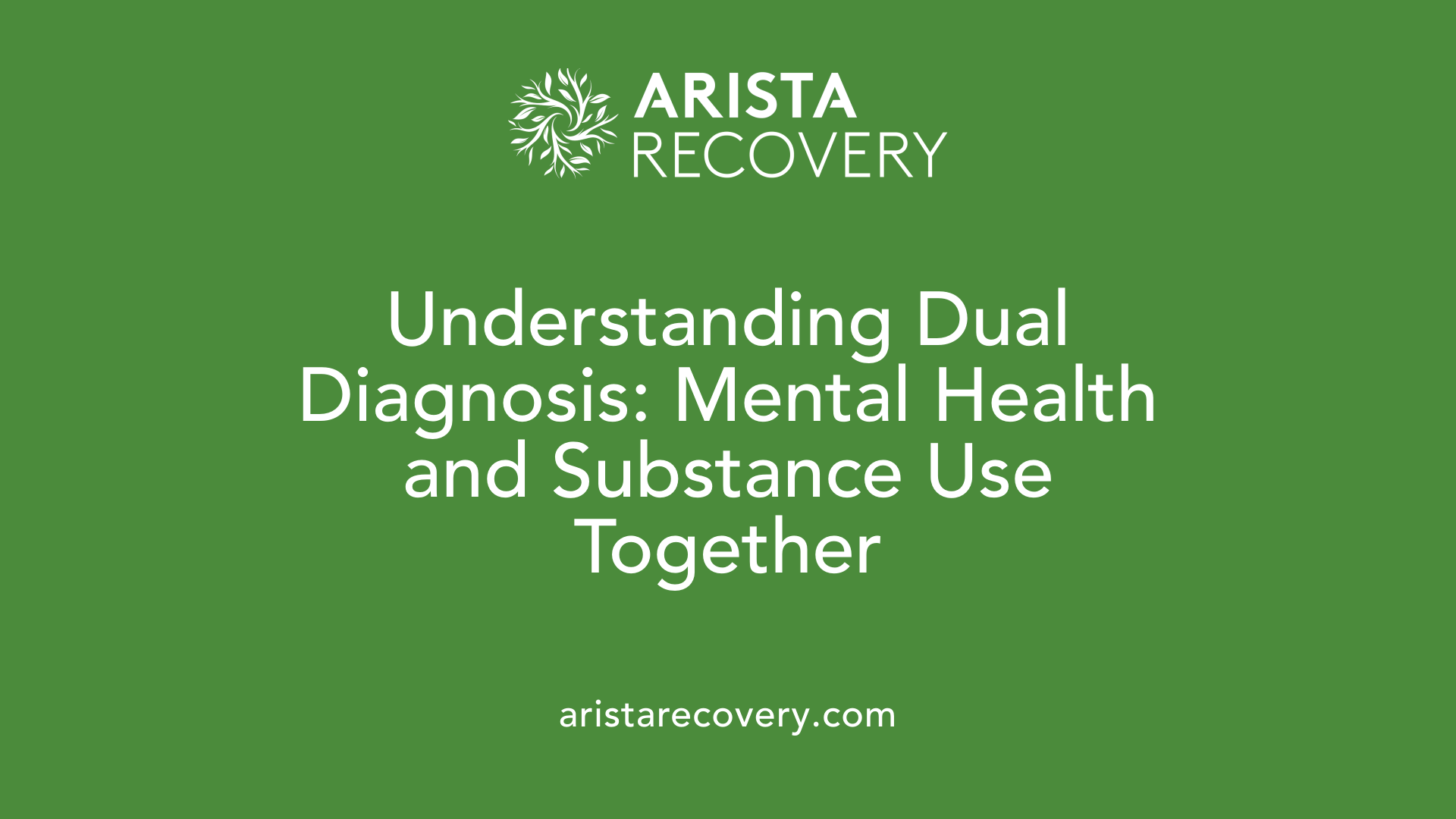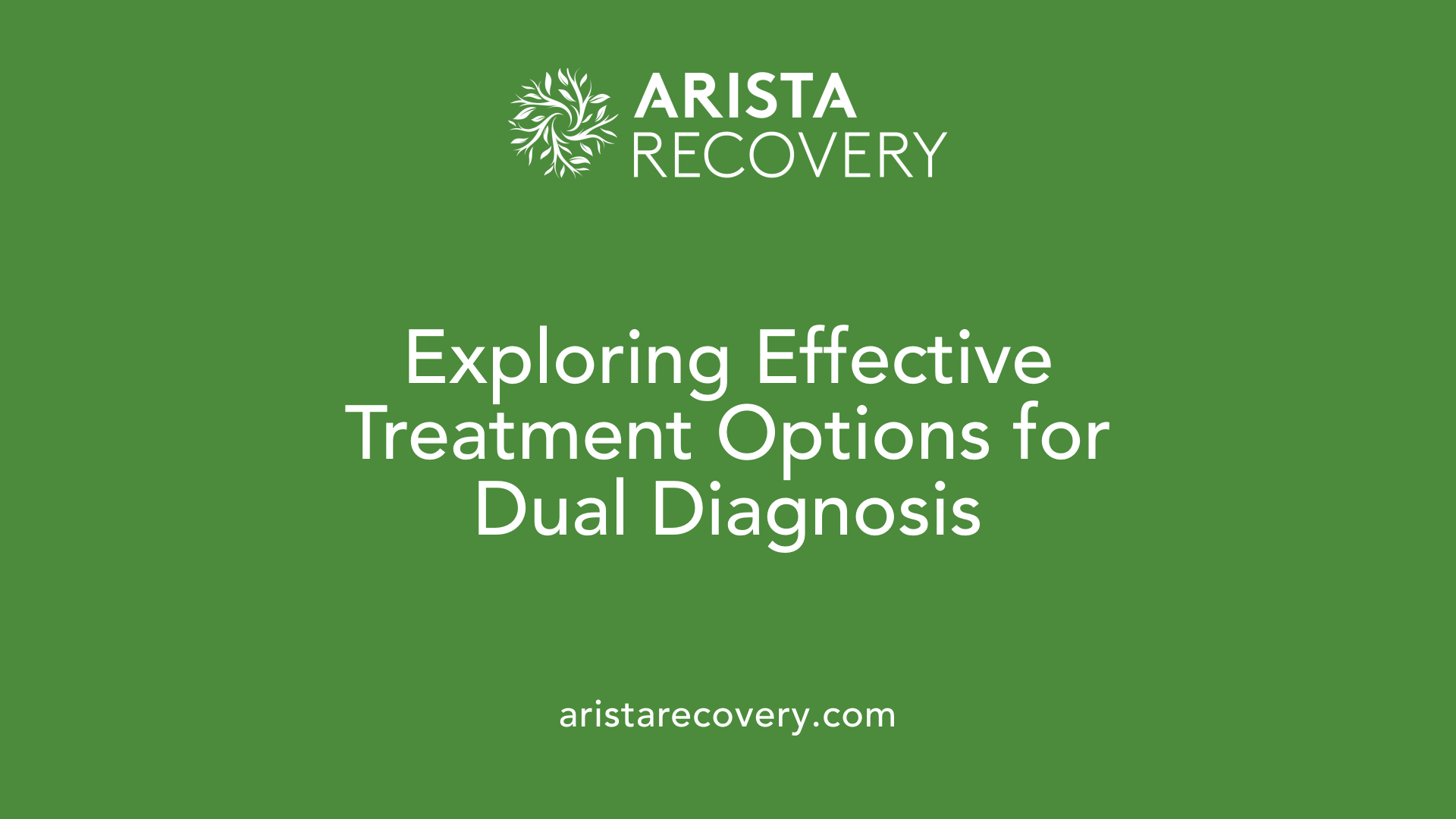Why Dual-Diagnosis Treatment Is Essential for Recovery

Understanding Dual Diagnosis in Recovery
Dual diagnosis, also known as co-occurring disorders, refers to the simultaneous presence of a mental health disorder and a substance use disorder in an individual. The treatment of dual diagnosis is critical as both conditions often exacerbate one another, further complicating the recovery process. It is essential to address both disorders concurrently with integrated treatment approaches that encompass therapy, medication, and support systems, ensuring a comprehensive path to recovery.
What is Dual Diagnosis in Mental Health?

Definition of dual diagnosis
Dual diagnosis in mental health refers to the coexistence of a mental health disorder alongside a substance use disorder. This condition is often termed as co-occurring disorder or co-morbidity. It highlights the complexity of treating both conditions effectively, as each can exacerbate the other, leading to a cyclical impact on health.
Prevalence and symptoms
The prevalence of dual diagnosis is significant, with approximately 50% of individuals who have a substance use disorder also experiencing a mental health disorder. For instance, many struggle with anxiety, depression, or bipolar disorder in addition to their addiction. Symptoms can vary widely, which complicates the process of diagnosis and may cause overlap, making it challenging for healthcare providers to discern which symptoms belong to which disorder.
Challenges in diagnosis and treatment
Diagnosing dual diagnosis can be particularly challenging due to the intertwined nature of symptoms. Inadequate treatment of one condition can lead to worsening of the other, which is why integrated approaches are vital. Despite the recognized benefits of treating both disorders simultaneously, only about 12% of individuals actually receive such integrated care, indicating a significant gap in effective treatment availability. To support recovery, comprehensive care including behavioral therapies, support groups, and medication management is essential.
Prevalence and Complexity of Co-occurring Disorders

What percentage of addicts have a dual diagnosis?
Approximately 37% of individuals who abuse alcohol and 53% of those who abuse drugs also have at least one serious mental illness, highlighting the significant overlap between substance use and mental health issues. Dual diagnosis signifies the presence of both a substance abuse problem and a mental health disorder, complicating the recovery process.
Roughly 50% of people with severe mental disorders are affected by substance abuse, showcasing the high prevalence of dual diagnosis among this population. Additionally, 29% of individuals diagnosed with a mental illness report abusing alcohol or drugs.
This cyclical relationship between substance misuse and mental health underscores the necessity for integrated treatment approaches that simultaneously address both issues for effective recovery. The data indicates that about 21.5 million adults in the U.S. experience co-occurring disorders each year, yet only 7.4% receive adequate treatment for both conditions, revealing a critical gap in care.
Correlation between mental health and substance use
The clear connection between mental health disorders and substances is aggravated by various factors, including attempts to self-medicate, where individuals resort to drugs or alcohol to alleviate mental health symptoms. Mental health conditions such as depression, anxiety, and PTSD often co-occur with substance use disorders, complicating recovery efforts.
Impact on recovery
Individuals with dual diagnoses experience more severe symptoms and a higher risk of relapse compared to those with a single disorder. This emphasizes the importance of integrated treatment plans that focus on both mental health issues and substance use to foster long-term recovery. Successful management requires a holistic approach involving behavioral therapies and support groups, ensuring that both elements of the dual diagnosis are effectively addressed.
Integrated Dual Diagnosis Treatment: A Necessity

Why is dual diagnosis treatment important?
Dual diagnosis treatment is critical because it allows for the simultaneous management of both substance use disorders and mental health issues. This integrated approach is essential for successful recovery, as addressing one disorder without acknowledging the other often results in relapse. Approximately 50% of individuals dealing with addiction also suffer from co-occurring mental health disorders, underscoring the importance of treating both simultaneously.
By focusing on the root causes of these intertwined issues, individuals are more likely to achieve lasting recovery. Treatment programs furnish patients with positive coping skills and strategies to manage anxiety linked to untreated mental health issues. Furthermore, dual diagnosis care can enhance overall physical health through comprehensive approaches like nutrition and exercise.
Ultimately, understanding the connection between mental health and substance use empowers individuals directly, improves their quality of life, and motivates them to pursue meaningful recovery goals.
| Challenges in Service Availability | Current Statistics on Treatment | Impact on Recovery Outcomes |
|---|---|---|
| Approximately 12% of individuals with dual diagnosis receive integrated care. | Roughly 21.5 million adults in the U.S. have co-occurring disorders. | Individuals treated for both conditions experience better outcomes than those treated for one. |
| Only 18% of substance addiction programs meet dual diagnosis treatment criteria. | 7.4% of adults with dual diagnosis are receiving appropriate care. | Without integrated treatment, symptoms of both conditions may worsen, leading to relapse. |
In summary, effective dual diagnosis treatment requires not just awareness but an actionable framework that integrates both mental health and substance abuse services to ensure patients get comprehensive care.
The Benefits of Dual Diagnosis Treatment

What are the benefits of dual diagnosis treatment?
The benefits of dual diagnosis treatment are multifaceted, offering a holistic recovery approach that simultaneously addresses both mental health disorders and substance use disorders. This integrated strategy leads to improved overall outcomes for clients and fosters a deeper understanding of their conditions.
Research indicates that dual diagnosis treatment significantly enhances long-term recovery rates. By directly addressing underlying issues, like depression or anxiety that often drive substance use, individuals can gain insight into their behavior patterns. This understanding is essential for effective recovery and helps reduce the likelihood of relapse.
Holistic recovery approach
Customized treatment plans are a significant advantage of dual diagnosis therapy. These plans are tailored to meet the unique needs of each client, encompassing a variety of effective modalities. Integrated treatment approaches can include:
- Behavioral therapies (e.g., CBT and DBT)
- Medication management (e.g., antidepressants, mood stabilizers)
- Support groups (e.g., Alcoholics Anonymous, Dual Recovery Anonymous)
- Educational resources about mental health and addiction
Reducing relapse rates
By addressing both mental health and substance use concurrently, dual diagnosis treatment actively reduces relapse rates. Individuals are not only treated for addiction symptoms but also for the co-occurring mental health disorders that can contribute to a cycle of substance use.
Customized treatment modalities
Ultimately, incorporating customized treatment modalities and therapies supports improved mental health and significantly enhances clients’ quality of life. Dual diagnosis programs emphasize a supportive environment, free from stigma, thus fostering lasting recovery.
Exploring Treatment Options for Dual Diagnosis

What treatment options are available for individuals with dual diagnosis?
Treatment for dual diagnosis requires a comprehensive and integrated approach to address both the mental health disorder and substance use disorder simultaneously. Effective strategies encompass:
- Behavioral Therapy: Techniques such as Cognitive Behavioral Therapy (CBT) and Dialectical Behavior Therapy (DBT) are pivotal. CBT aids in reshaping negative thought patterns while DBT focuses on emotion regulation and reducing self-harm behaviors.
- Medication Management: Medications can be essential in stabilizing mood and reducing cravings. Antidepressants and mood stabilizers are commonly used to treat underlying psychiatric conditions.
Role of support groups
Support groups are another crucial element of dual diagnosis treatment. They provide emotional support and camaraderie, connecting individuals with others facing similar challenges. Programs like Alcoholics Anonymous or Dual Recovery Anonymous offer a platform for sharing experiences, fostering accountability, and maintaining sobriety.
Long-term treatment support
Long-term recovery focuses on equipping individuals with skills for sustaining sobriety and managing their mental health over time. Integrated treatment plans, which include therapy, medication, and community support, are crucial for mitigating the risk of relapse. Encouraging healthy lifestyle changes, alongside ongoing therapeutic support, enhances the likelihood of successful long-term outcomes.
In conclusion, addressing both mental health and substance use disorders concurrently leads to improved recovery prospects, underscoring the importance of tailored, dual diagnosis treatment programs.
The Interplay of Mental Health and Substance Use in Recovery
How do mental health issues and substance use interact in the context of recovery?
Mental health disorders and substance use issues often create a cyclical relationship that complicates recovery. Many individuals may resort to substance use as a way to self-medicate their mental health symptoms, which can include anxiety, depression, or trauma-related stress. This self-medication can lead to increased dependency on substances, further diminishing an individual's mental health state.
Conversely, substance use can intensify existing mental health conditions, creating escalating distress and making recovery even more challenging. For instance, alcohol and drugs can amplify symptoms of disorders like PTSD or bipolar disorder, leading to a vicious feedback loop of worsening mental health and substance dependency.
Integrated treatment approach
A successful recovery from dual diagnosis necessitates an integrated treatment approach. This method involves addressing both mental health and substance use disorders concurrently, rather than in isolation. By doing so, treatment plans can provide holistic care that acknowledges the interconnectedness of these issues.
A multidisciplinary team often oversees integrated treatment, allowing for seamless communication among providers and ensuring that care is continuous and cohesive. This integrated approach emphasizes that effective recovery plans not only treat the symptoms of each condition but also tackle their underlying causes.
Holistic recovery framework
Holistic recovery frameworks are invaluable for individuals facing dual diagnosis. These approaches include therapies like Cognitive Behavioral Therapy (CBT) and Dialectical Behavior Therapy (DBT), which equip patients with skills to better manage their mental health and substance use.
Support networks, including peer support groups, family education, and lifestyle changes—such as maintaining a healthy diet and focusing on stress management—also play crucial roles in a comprehensive recovery strategy. Addressing both mental health and substance use simultaneously not only fosters a more supportive environment but also enhances the likelihood of long-term recovery.
A Path to Lasting Recovery
Dual diagnosis treatment is vital in addressing the complex needs of individuals facing both mental health challenges and substance use disorders. By focusing on integrated treatment plans that consider both aspects equally, patients can achieve more sustainable recovery outcomes. The comprehensive approaches of dual diagnosis treatment not only address the immediate symptoms but also the underlying issues, equipping individuals with the tools necessary for long-term sobriety and improved mental health. As awareness and understanding of co-occurring disorders increase, it is crucial that more treatment centers adopt dual-diagnosis capabilities to close the care gap and enhance recovery pathways for millions in need.
References
- Dual Diagnosis: Definition & Treatment - Cleveland Clinic
- Dual diagnosis capability in mental health and addiction treatment ...
- Why Dual Diagnosis Residential Treatment Matters
- 5 Things to Know About Dual Diagnosis Treatment | Holly Hill Hospital
- Why Dual Diagnosis Treatment Is Important for Recovery
- Dual Diagnosis - MedlinePlus
- Deal with a Dual Diagnosis: Substance Abuse & Mental Health
- Dual Diagnosis: An Overview - Lincoln Trail Behavioral Health System

